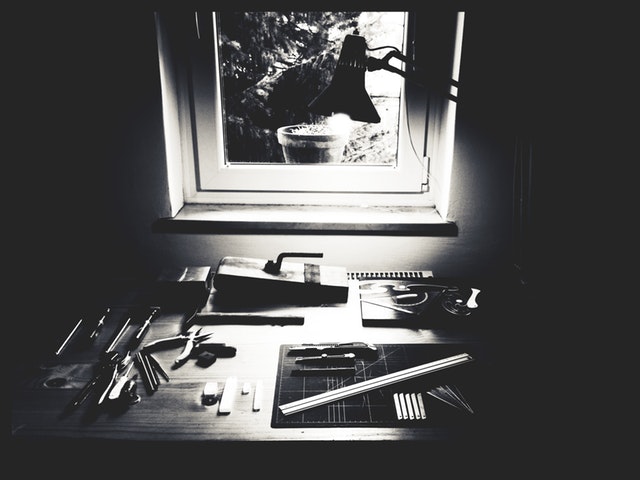All home inspection reports list potential issues. It’s just something that can’t be avoided – over years of use, anything will start to experience wear and tear, and a house is no exception. It’s also not uncommon for newly bult homes to have issues noted on your home inspection report as well.
As a home buyer, or a real estate agent representing the buyer, how do you know which items you should request the seller fix before the purchase contract is finalized?
Electrical, plumbing, roof, HVAC – these major structural systems are items you can reasonably expect a seller to take care of under most circumstances, as long as the problems are significant enough to impact use of the house.
But what are the repairs that sellers will often push back against?
1. Cosmetic house repairs
Cosmetic issues are at the top of the list of items to avoid asking a seller to fix.
Real estate agents most often advise home owners on some things to fix before listing the property for sale. These repairs center around what makes the home more salable, and what can help boost the listing price. Some sellers may not listen, and others may not have the full budget to complete all of the recommendations.
Things like a deck that needs staining, or a crack in the sidewalk, usually do not detract from the ability to use the property – they may just be an eye sore.
A good rule of thumb buyers can ask themselves – if the sell fell apart, and the home went back on the market, would it be reasonable to assume the next buyer would also have the same request? Would the cosmetic issue stop the buyer from obtaining financing?
2. Cosmetic landscaping
Minor problems in the yard, or cosmetic issues, are also minor and not things that should be requested from the seller. Other small issues would be missing rocks in borders, leveling bricks in a pathway, or trimming trees. A buyer can’t expect the seller to plant flowerbeds or install water features, or making minor landscaping repairs that the buyer can do after purchase.
Most of these items fall under the question of would another buyer have the same request. If the answer is no, then it may be best to leave the issue until after you purchase the home.
3. Any home repair under $100
Minor repairs needed that cost under $100 to fix are definitely requests a buyer shouldn’t make. While repair requests are not always about the financial impact, any individual item under $100 is a bit extreme.
There may be 100 small things that need to be fixed on a home – but both buyer and seller only have a set amount of time to close the transaction. If the seller receives multiple repair requests, it may feel overwhelming due to the time constraint and the seller’s agent may recommend passing on your offer if the requests become ridiculous. Over the years there have been plenty of times when a seller has terminated the contract and switched to a backup offer due to feeling that requests from a buyer were unreasonable.
When a repair is going to cost $100 or less, the buyer is most often best in just taking care of it after the closing.
4. Loose fixtures, railings, and similar
Having a loose railing on a deck, a loose light fixture, or door knob may be annoying, and could be unsafe, but they are also issues that are usually able to be fixed with basic tools and little time or effort- and usually fall into the $100 category above.
Major rot or decay, or major safety concerns, can be a problem – but if the issue is minor, you can avoid worrying about it immediately.
5. Light switches and sockets
Speaking of loose light fixtures, another common electrical issue is older homes lacking GFCI outlets in the kitchens and bathrooms. While newer homes always have these outlets, older homes and the families that have lived in them functioned for decades without having an issue, so these are often items that do not require immediate replacement.
The electrical systems in older homes can also be finicky. Parts like switches or sockets can wear out and no longer function, but are not necessarily signs of larger electric problems. Your home inspector will note if the electrical system is safe to use and up to code.
6. Broken window seals
Failed window seals are common in homes. Glass that has become fogged is almost always visible when viewing a home unless you are not paying attention. Most home inspectors will tell you that a failed window seal is purely cosmetic. The is very little energy lost through a failed window seal and the insulation value is minimal.
The repair for replacing a few window seals is also a minor issue, and usually falls into the under $100 category as well.
Keep this in mind when making your offer. If there are a significant number of windows that need replacement due to major issues, account for that in your offer up front and explain that the state of the windows is why you made the bid at your number.
Don’t ask for something to be fixed that you clearly noticed before making your offer or which was disclosed up front.
7. Minor water damage
Signs of water damage are sometimes more concerning than they appear.
When interior materials are exposed to water, it can look pretty bad and it’s unlikely you would miss this damage as you looked through a house. One of the most common signs you may see is in the ceiling under a bathroom – often caused by a toiler that overflowed at some point or a shower curtain that had been left open.
It is often easy to discern if the stain was a one-time event or an ongoing issue. Often the original issue may have already been repaired, but the stain could still remain.
In some cases, this is only a cosmetic issue, which you could fix later. If water has caused significant damage, the inspector will let you know.
8. Buyer planned renovations
Some buyers going into a home purchase having plans to renovate part of a home. They may view the house and imaging some improvements that would make the property perfect for their family’s needs and lifestyle versus close enough.
Remember the seller is not responsible for providing the buyer’s dream home – they just want to sell for the best price possible and be finished. Avoid asking for repairs that relate to your planned renovations. Doing so will put the sale at risk, which is unnecessary since you are just going to renovate anyway.
9. Basement floor cracks
If the home has a basement, cracks in its concrete floor are expected and not a structural issue in the majority of cases. These floors are not responsible for holding up the structure and therefore the cracks are purely cosmetic.
However, with cracks in basement walls it is important to determine if they are structural or not. Usually these are also not a concern unless the crack has opened significantly or the wall has shifted, or if the cracks are letting water into the building.
10. External buildings
In a competitive housing market – a seller’s market – a buyer needs to let some minor issues go when it comes to outbuildings.
External buildings on a property tend to get less attention from owners than the main house, so they usually get a bit more run down. Sheds may show some rot and garages get dirty.
If there are serious issues it may be reasonable to ask for repairs, but when they just look like most others on the market – less than perfect – it’s to be expected. Also, these issues are easily seen when viewing the property, so any concerns should have been in the initial offer, not in a repair request after the home inspection.
What Home Inspection Items Should Be Fixed?
Focus on requesting repairs or replacements for significant structural, mechanical, or environmental defects found during a home inspection, such as:
- Termites or other wood destroying insects.
- Wildlife infestation like bats or squirrels in the attic.
- Major drainage or on going water problems.
- Mold problems.
- Elevated Radon levels above EPA suggested levels.
- Major electrical defects that cause safety issues.
- Significant plumbing problems that interfere with the use of the home.
- Lead paint. It should be noted that it is a federal requirement for sellers to disclose the known presence of lead paint in a property.
- Well water problems, such as a lack of pressure or volume of water.
- Major structural issues such as a leaking roof or substandard building violations.
For a professional home or commercial inspection in the Dallas/Fort Worth Metroplex that will provide you peace of mind, schedule your inspection now
Call
682-351-2267
or book online



